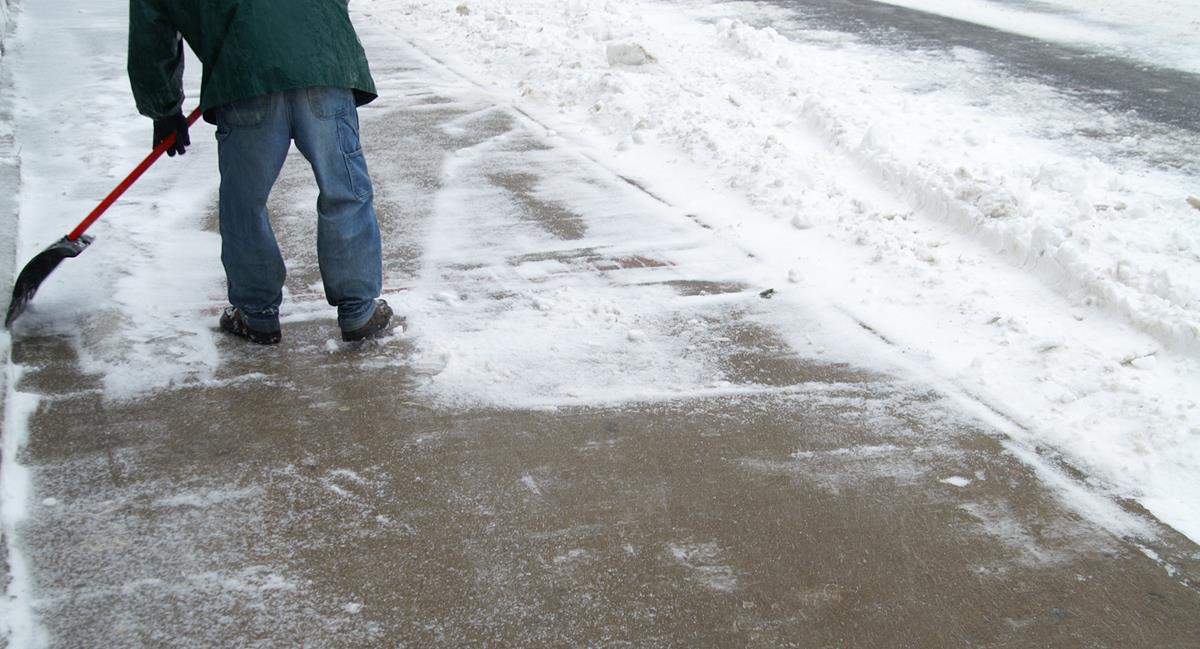New Jersey Supreme Court Declines to Hold Landlord Responsible for Property Over Which Tenant Maintained Control

Newark, N.J. (February 3, 2020) - A recent case decided by the New Jersey Supreme Court draws a significant line between what care and service of property, and the resulting liability therefrom, can and cannot be delegated by a landlord. While it represents a departure from historic notions of a landlord’s duty, the Court was not willing to completely separate from prior rulings, running the analysis under the existing framework as well.
Background
The historic, bright-line rule is that a commercial landowner has a non-delegable duty to repair a dangerous condition on the property. The removal of snow and ice often brings this bright-line rule to significant light. Often, a commercial landlord will retain the duty to remove snow and ice and will hire an outside vendor to perform that task. While the duty is not delegated, per se, the liability is handled through indemnification and additional insured status in favor of the landlord. If there is no insurance, and the vendor is judgment-proof, the liability will still fall to the landlord.
In 1981, the Court held that the maintenance of an abutting public sidewalk was the responsibility of the landlord, determining that it was the landlord, as opposed to the municipality, who was more likely to keep that sidewalk in proper condition. It also relieved injured plaintiffs from being left without recourse against a government entity. Stewart v. 104 Wallace St., Inc., 87 N.J. 146 (1981). The duty was extended to snow and ice removal in Mirza v. Fillmore Corp., 92 N.J. 390 (1983), and in 1995, the duty was declared non-delegable, meaning that it could not be allocated to a tenant via a lease or contract. Vasquez v. Mansol Realty Associates, Inc., 280 N.J. Super. 234 (App. Div. 1995).
Shields v. Ramslee Motors
In Shields v. Ramslee Motors, (A-53-18, decided January 23, 2020), the plaintiff was a delivery driver who slipped and fell on snow and ice in the driveway after delivering an envelope to the tenant, Ramslee Motors. The tenant’s lease agreement placed the duty of maintenance and repair of the property exclusively with the tenant, “as if TENANT were the de facto owner of the leased premises.” The landlord reserved the right to enter the property if necessary, and the tenant testified during the pendency of the case that it was responsible for the removal of snow and ice, and that it maintained equipment on the premises to do so. Shields filed against both the tenant and the landlord, and he settled with the tenant. The landlord filed a motion for summary judgment. The Appellate Division overturned the trial court’s grant of the motion, holding that the non-delegable duty for the abutting sidewalk extended to the driveway that was on the premises. The Supreme Court reversed.
The holding hinged on the fact that the duty to maintain the driveway never belonged to the government, and therefore, the historical underpinnings of transferring that duty to the landlord in Stewart simply did not exist when it came to the private land. Finding that the non-delegable duty did not apply, the Court went through an analysis of control over the area where the accident occurred, finding that the tenant maintained nearly exclusive control over the driveway, despite the ability of the landlord to enter the premises. Justice Albin dissented from this finding by the Court, noting instead that while the control may have existed, the transient nature of the dangerous condition did not afford the landlord the opportunity to remedy it. The plaintiff and amicus counsel argued that the Court should apply the holding in Hopkins v. Fox & Lazo Realtors, 132 N.J. 426 (1993), a four-part test used to determine the fairness of where the duty should lie. The Court did so, coming to the same conclusion that the Hopkins factors (relationship of parties, nature of risk, opportunity to exercise care, and public interest) weighed in favor of the duty being imposed on the tenant, to the exclusion of the landlord.
Conclusion
Given the Court’s decision to analyze the Hopkins factors after determining that the tenant had control over the driveway, one wonders whether the outcome would be different if the analysis of the control of the premises was inconsistent with the analysis of the Hopkins factors. Unfortunately, entertaining both tests leaves practitioners to their own devices concerning which is the proper test when dealing with a landlord-tenant situation. However, the Shields opinion is useful in the historical context of the non-delegable duty and its bright-line rule that the Stewart/Mirza duties should not be extended onto that part of private property that does not include a public easement.
For more information on this case, contact the author of this alert. Find additional alerts on our General Liability and National Trial Practice pages.
Author:
Thomas Regan, Partner
